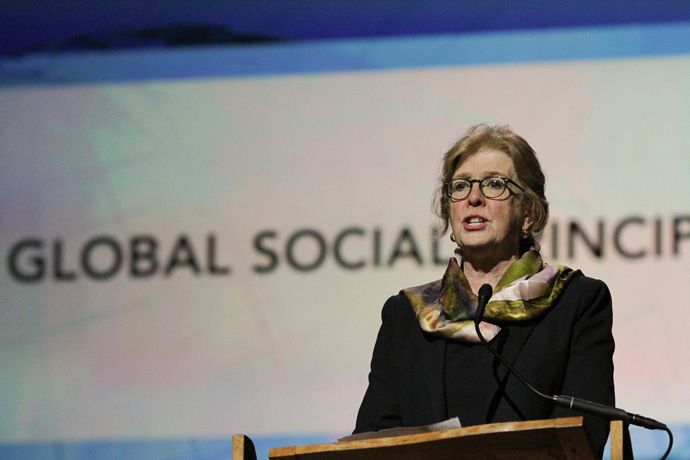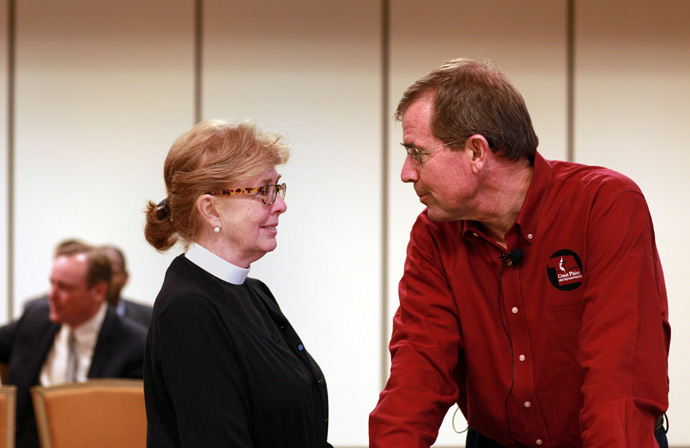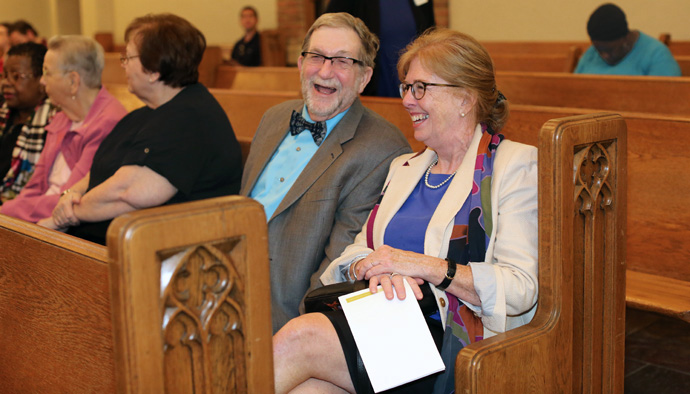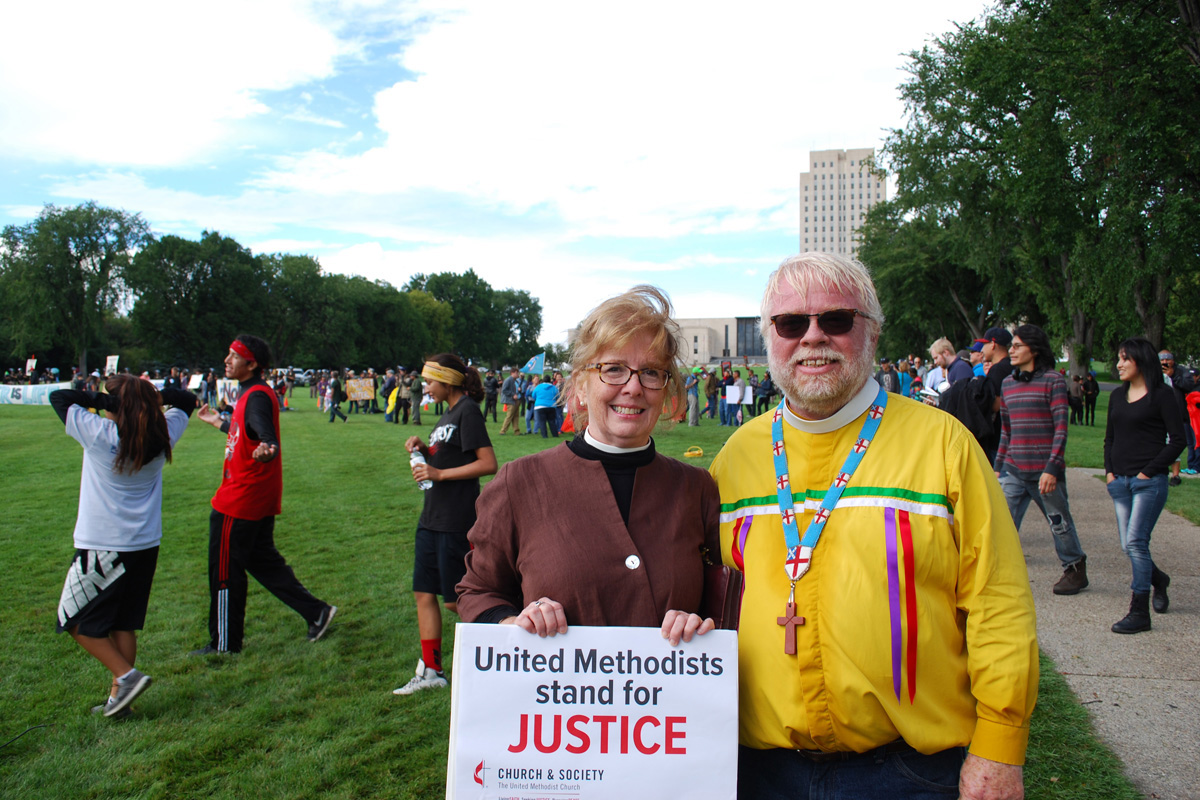Key Points:
- Retired from the United Methodist Board of Church and Society since December, Henry-Crowe says a United Nations seminar at age 16 launched a career focusing on peace and justice.
- A United Methodist elder, Henry-Crowe served as a local church pastor, dean of the Chapel and Religious Life at Emory University, South Carolina Annual Conference Council on Ministries director and United Methodist Judicial Council member.
- “I do feel hopeful about the church and the wisdom of generations that have gone before,” she says. “These seem like hard days, but I see many hopeful things happening.”
The Rev. Susan Henry-Crowe’s worldview started when she was 16 and attended a United Nations seminar focusing on the Middle East.
The youth group from Buncombe Street United Methodist Church in Greenville, South Carolina, spent six months studying the Middle East before traveling to New York City to attend the seminar.
The trip coincided with the Six-Day War in the Middle East. The war was fought between Israel and a coalition of Arab states in 1967.
“The trip was my entrée into a larger world influenced by the church,” she said.
While part of the youth group, she spent two summers on Johns Island, South Carolina, working with an ecumenical ministry program for migrant workers picking tomatoes.
“It was hotter than you can imagine,” she recalled, “and the housing for the migrants was terrible.”

Those formative experiences, which she credits to Olene Civils, a deaconess who was director of Christian education at Buncombe Street, led her to a life of service to The United Methodist Church and took her around the world.
Henry-Crowe retired on Dec. 31, 2022, after eight years as the top executive of the United Methodist Board of Church and Society.
An elder in full connection, she is a member of the South Carolina Annual Conference and served pastoral appointments from 1976 to 1985.
She was dean of the Chapel and Religious Life at Emory University (1991-2014) and director of the United Methodist South Carolina Annual Conference Council on Ministries. She served on the United Methodist Judicial Council (1992-2000 and 2004-12).
Her combined years of service add up to almost 49 years of active ministry in The United Methodist Church.
During her tenure with Church and Society, Henry-Crowe was instrumental in the major rewriting of the United Methodist Social Principles, said Bishop Sally Dyck, president of the executive committee board of directors for the agency.

The agency has offices in the United Methodist Building situated across the street from the U.S. Supreme Court. The building also has apartments, and Henry-Crowe lived there during her tenure.
Living in the United Methodist Building became challenging during COVID-19 when people were working remotely, Dyck noted. It became even more isolating during and after the protests at the U.S. Capitol on Jan. 6, 2021, which left protective fencing around many of the buildings.
“In spite of these challenges, the agency is in a strong position as a result of her leadership,” Dyck said. “She will be greatly missed as a leader in this position but undoubtedly will continue to work for justice, peace and faith in the years to come.”
Subscribe to our
e-newsletter
John Hill, interim top executive for the agency, said Henry-Crowe brought a “profound sense of joy to our work.”
“Under her leadership,” he said, “Church and Society sharpened its focus on key issues impacting our communities and more clearly communicated our shared United Methodist vision for living faith, seeking justice and pursuing peace in God’s world.”
The Rev. Sharon G. Austin, director of Connectional and Justice Ministries for the Florida Conference and a member of the board of directors, said Henry-Crowe is well-known on “the Hill” in the nation’s capital and has represented the church in many places worldwide.
“Susan has always done the hard work of ministry and speaking truth to power by cultivating relationships,” Austin said.
“Over the years, from Washington, D.C. to Berlin, Germany, to the Democratic Republic of Congo to Montgomery, Alabama, we traveled through cities and towns, and we dreamed about what could be done and all that we needed to learn as we gave thanks for the places we saw God at work,” she said.
On a trip to the DRC to teach and talk about the revised Social Principles, Austin said she witnessed Henry-Crowe’s “gracious spirit, respect and gratitude across the lines of race, culture and language.”
Raúl B. Alegría, a member of the board of directors, said he will always remember Henry-Crowe’s commitment and advocacy for immigrants seeking asylum at the U.S. and Mexico border.
“Susan was vocal and vigilant about The United Methodist Church caring for those persons and their families,” he said. “She saw the need of The United Methodist Church to express advocacy for immigrants, not as a political issue, but as a direct expression of the gospel to love our neighbors.”

The Rev. Michelle Beadle was hired by Henry-Crowe as her executive assistant and served with her for five years.
“I came to the Board of Church and Society because I was drawn to the ministry. I love the church, and I love society — and their intersection is where miracles happen,” said Beadle, ordained clergy with the United Church of Christ.
“For Susan, seeing the potential within that intersection is innate. Her appreciation for how the gospel touches the ground isn’t something she does; it is who she is.”
Henry-Crowe has returned to her home in Atlanta and is reconnecting with friends both in the city and at Emory University.
“I am fundamentally Methodist in the way we love connections,” she said, laughing. She is also working on local issues such as voter suppression and justice work around indigenous people, communities of people of color and some international work. She is always trying to encourage young people.
She continues to have a conference relationship in South Carolina and is currently “itinerating” between churches in Atlanta and Durham, North Carolina, where her daughter, son-in-law and two grandchildren live.
“I have so much gratitude for people I worked with over the years. I do feel hopeful about the church and the wisdom of generations that have gone before,” she said. “The church still has vital presences in the world that I hope we will continue to pull on. These seem like hard days, but I see many hopeful things happening.”
Gilbert is a freelance writer in Nashville, Tenn. News media contact: Tim Tanton or Joey Butler at (615) 742-5470 or newsdesk@umcom.org. To read more United Methodist news, subscribe to the free Daily or Weekly Digests.




